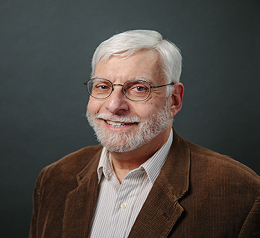Scholars International Webinar on:
Catalysis and Chemical Science
THEME: "The Role of New Technologies in the Fields of Catalysis and Chemical Science"
 24-25 Mar 2021
24-25 Mar 2021  Webinar | Virtual Meet | 11:00-17:00 GMT
Webinar | Virtual Meet | 11:00-17:00 GMT THEME: "The Role of New Technologies in the Fields of Catalysis and Chemical Science"
 24-25 Mar 2021
24-25 Mar 2021  Webinar | Virtual Meet | 11:00-17:00 GMT
Webinar | Virtual Meet | 11:00-17:00 GMT 
Virginia Polytechnic Institute and State University, USA
Title: Double-Duty Complexes: Catalysis and Biological Activity in One Neat Package
Joseph S. Merola is a Professor of
Chemistry at Virginia Tech and a graduate of Carnegie-Mellon University (B.S.
Chemistry, 1974). He received his Ph.D.
in chemistry in 1978 from M.I.T under the direction of Professor Dietmar
Seyferth. In 1978, he joined the
Corporate Research Laboratories of Exxon Research and Engineering Co in New
Jersey. In 1987, he joined Virginia Tech
where he has been ever since, although he has held many different roles over
his time there. Professor Merola is a
Fellow of the American Chemical Society and a Fellow of the American
Association for the Advancement of Science. He has published over 120 papers in
the organometallic chemistry and catalysis field.
“Piano-Stool” complexes of transition
metals have been known since the beginning of “modern” organometallic
chemistry, often dated to the serendipitous discovery of ferrocene in
1951. Since then, the number of pi-complexes of metals including other
sandwich and half-sandwich compounds (piano-stools) is difficult to
quantify. A “Google Scholar” search on the terms “piano-stool” or
“half-sandwich” complexes returned over 150,000 hits and that is probably not a
complete accounting. With at least that number in the literature, is
there anything new to add to the field? It is the hope that this lecture
will convince you that the answer is “yes!”
This talk will describe chemistry of
rhodium and iridium piano-stool complexes for:
In
both areas, how changing the piano-stool metal, pi-ligand, and other ligands ca
tune both catalytic activity and biological activity will be discussed.